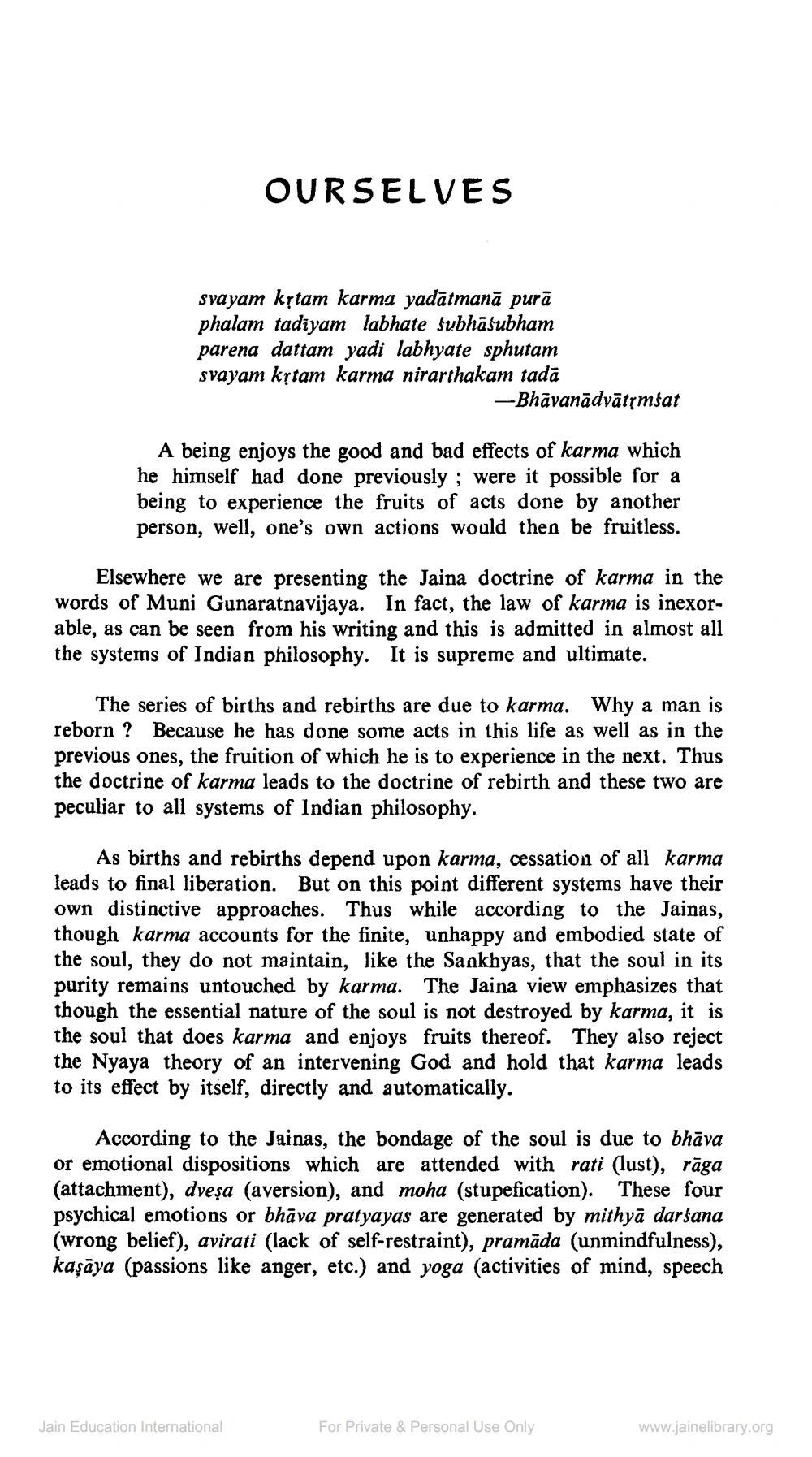Book Title: Jain Journal 1969 01 Author(s): Jain Bhawan Publication Publisher: Jain Bhawan Publication View full book textPage 3
________________ OURSELVES svayam kytam karma yadātmanā purā phalam tadiyam labhate subhāśubham parena dattam yadi labhyate sphutam svayam kytam karma nirarthakam tada -Bhāvanādyātrmšat A being enjoys the good and bad effects of karma which he himself had done previously ; were it possible for a being to experience the fruits of acts done by another person, well, one's own actions would then be fruitless. Elsewhere we are presenting the Jaina doctrine of karma in the words of Muni Gunaratnavijaya. In fact, the law of karma is inexorable, as can be seen from his writing and this is admitted in almost all the systems of Indian philosophy. It is supreme and ultimate. The series of births and rebirths are due to karma. Why a man is reborn ? Because he has done some acts in this life as well as in the previous ones, the fruition of which he is to experience in the next. Thus the doctrine of karma leads to the doctrine of rebirth and these two are peculiar to all systems of Indian philosophy. As births and rebirths depend upon karma, cessation of all karma leads to final liberation. But on this point different systems have their own distinctive approaches. Thus while according to the Jainas, though karma accounts for the finite, unhappy and embodied state of the soul, they do not maintain, like the Sankhyas, that the soul in its purity remains untouched by karma. The Jaina view emphasizes that though the essential nature of the soul is not destroyed by karma, it is the soul that does karma and enjoys fruits thereof. They also reject the Nyaya theory of an intervening God and hold that karma leads to its effect by itself, directly and automatically. According to the Jainas, the bondage of the soul is due to bhāva or emotional dispositions which are attended with rati (lust), rāga (attachment), dveşa (aversion), and moha (stupefication). These four psychical emotions or bhāva pratyayas are generated by mithyā darśana (wrong belief), avirati (lack of self-restraint), pramāda (unmindfulness), kaşāya (passions like anger, etc.) and yoga (activities of mind, speech Jain Education International For Private & Personal Use Only www.jainelibrary.orgPage Navigation
1 2 3 4 5 6 7 8 9 10 11 12 13 14 15 16 17 18 19 20 21 22 23 24 25 26 27 28 29 30 31 32 ... 47
